Yu Jianhua: Monkey protector in Mt. Baima reserve
The monkey protector
At 5:30 am, it was quiet in the Baima Snow Mountain nature reserve, and creatures in the forest were asleep, waiting for the dawn.
In the reserve, the several lights have been switched on at the Xiangguqing village of the Tacheng town, Weixi County.

Taking the prepared food, Yu Jianhua, a 65-year-old forester, was rushing to the area where Yunnan snub-nosed monkeys usually stay.
"I should first know if the monkeys still stay where they were last night. If not, I have to find them." Yu Jianhua said to himself. With steady steps, Yu looks thin but vigorous.
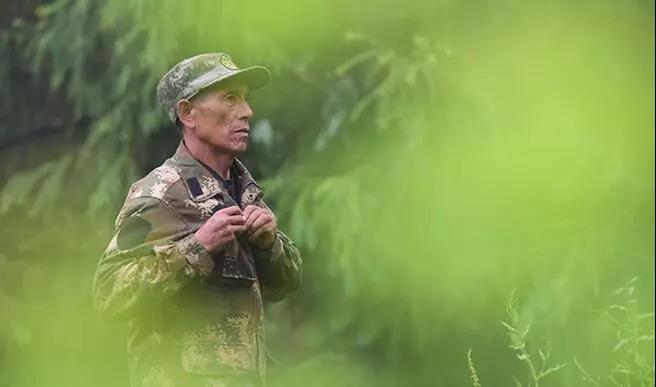
His job is to follow the monkeys. Yu feeds them and observe their living areas, ensuring that the food is enough, the monkeys are healthy, and the surroundings are safe.
Yu Jianhua usually works around 8:00 pm, when the monkeys find their night habitat. Then, he goes home for dinner.
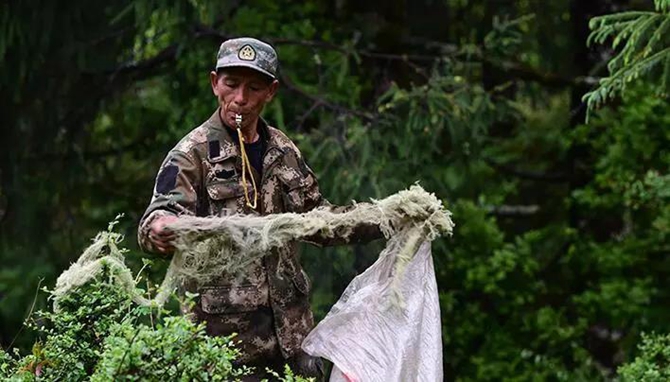
Yu Jianhua used to be a hunter. In 1997, he became a forest ranger. As a result, his income fell to 6 yuan per day from around 15 yuan.
His family was unhappy with him and his hunter friends said he is a traitor, but Yu Jianhua did not waver from his decision.
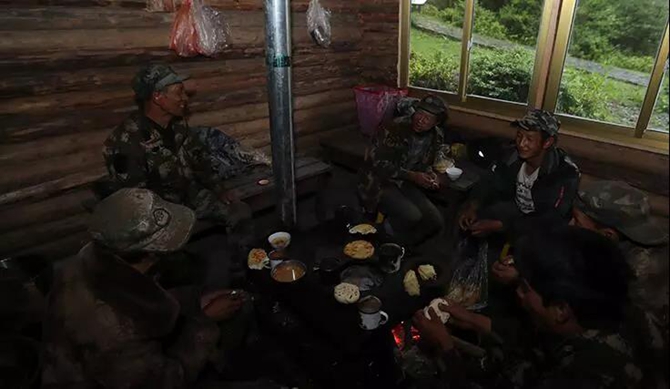
"I like monkeys," Yu said plainly.
So far, more than 20 local Lisu folks have followed Yu Jianhua and become rangers in Tacheng Town.
The monkey family
Yunnan snob-nosed monkeys are the non-human primate living in the highest altitude. Like the giant panda, the money is also a national treasure in China.
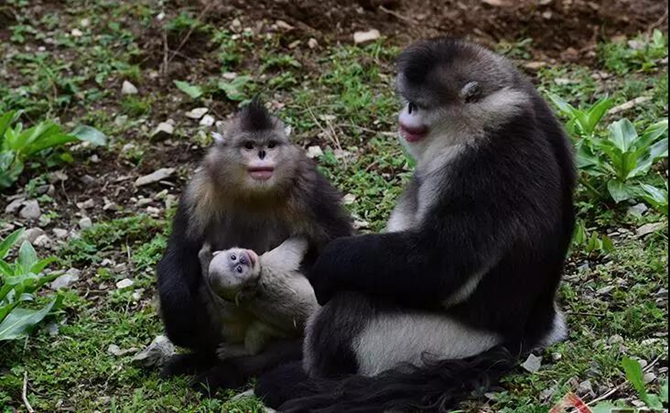
The group in Xiangguqing currently has more than 70 monkeys, consisting of 11 families and an all-male family. And the 11 families are named after the male monkeys: “red dot”, “prosperity”, “spring sunshine” and others.
Class or rank is quite obvious in the Yunnan monkey societies. “The strongest male has the most family members and enjoys the highest status among the monkeys,” said Wang Chunping, a graduate student at the Kunming-based Southwest Forestry University.
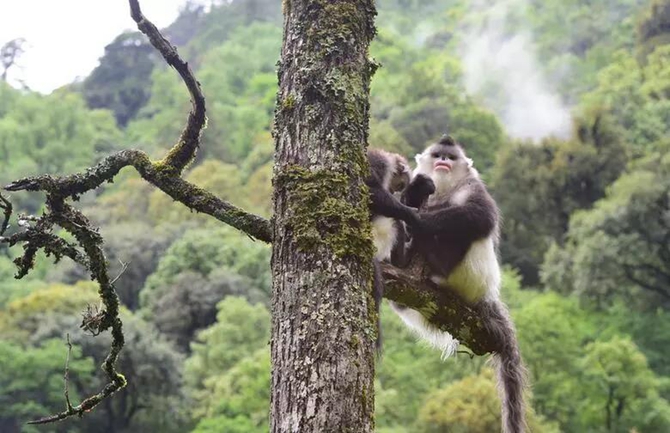
At present, the “red dot” family is the most prestigious and prosperous family, involving 6 female monkeys and 9 monkey babies. “The attractive Red Dot monkey is at his prime days, taking good care of the females. He often grooms for the females.
The leading male monkeys may be brave, considerate, or gentle, but they’re all smart enough to find enough food and find the safe route, protecting their family members.

In Wang's view, the grow-up of a male monkey is like a boy-to-man change in human society.
"When a male first has a family, he is not necessarily brave enough to snatch food from a ranger’s hand and protect his female partner at offensives from other males. After the male has a baby, however, he will grow much braver.”
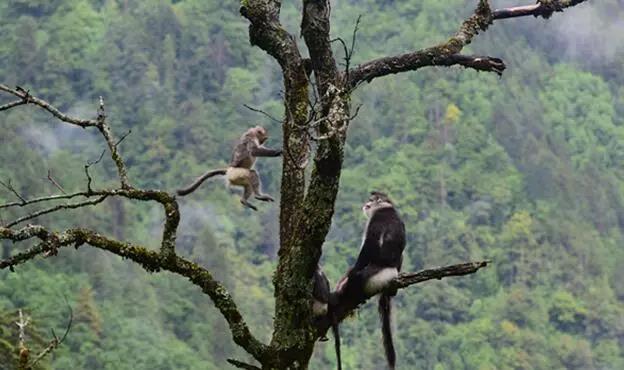
Wang added each male monkey has to go through the shy childhood, the green grow-up period, the prime days with wives and kids, as well as the aging and loneliness.
The man-monkey affection
At first, the monkeys would turn around and run away at the sight of Yu Jianhua. Then they watch him in distance.
Yu Jianhua could no longer remember the date when monkeys first accepted his food, but the scene is still on his mind.
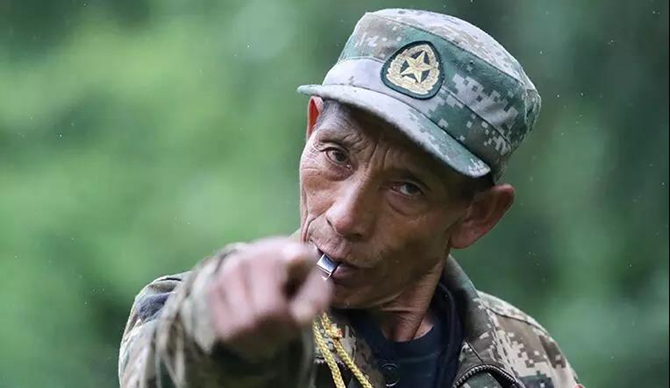
"They finally ate the food. Thank goodness!" It’s so rewarding for Yu to be accepted by the monkeys. His ten-year commitment to the monkeys paid off.
"Those days, I just followed the monkeys every day." As time goes by, Yu Jianhua got to know the joy, anger, sorrow and happiness of the monkeys. He even understood the “monkey language.”
"Oh, oh! Ahguali?" (Hey, where are you?)
"Uh-huh, um, um." (Here, here.)
When Yu Jianhua and his fellow rangers called the monkeys in prolonged Lisu tunes, they were echoed by the monkeys in the distant forest. What a moving scene!

"Now, the monkeys are like my family. If I do not see the primates for one or two days, I will miss them a lot." The monkeys rushed towards him, crying, and Yu Jianhua gazed at them, with a look of affection in his eyes.
Whenever a visitor intrudes into the monkey area, Yu would immediately get tough and signal a warning. “Retreat! No entry!”
Further reading:

By Cheng Chuangye and Wu Rui; trans-editing Wang Shixue